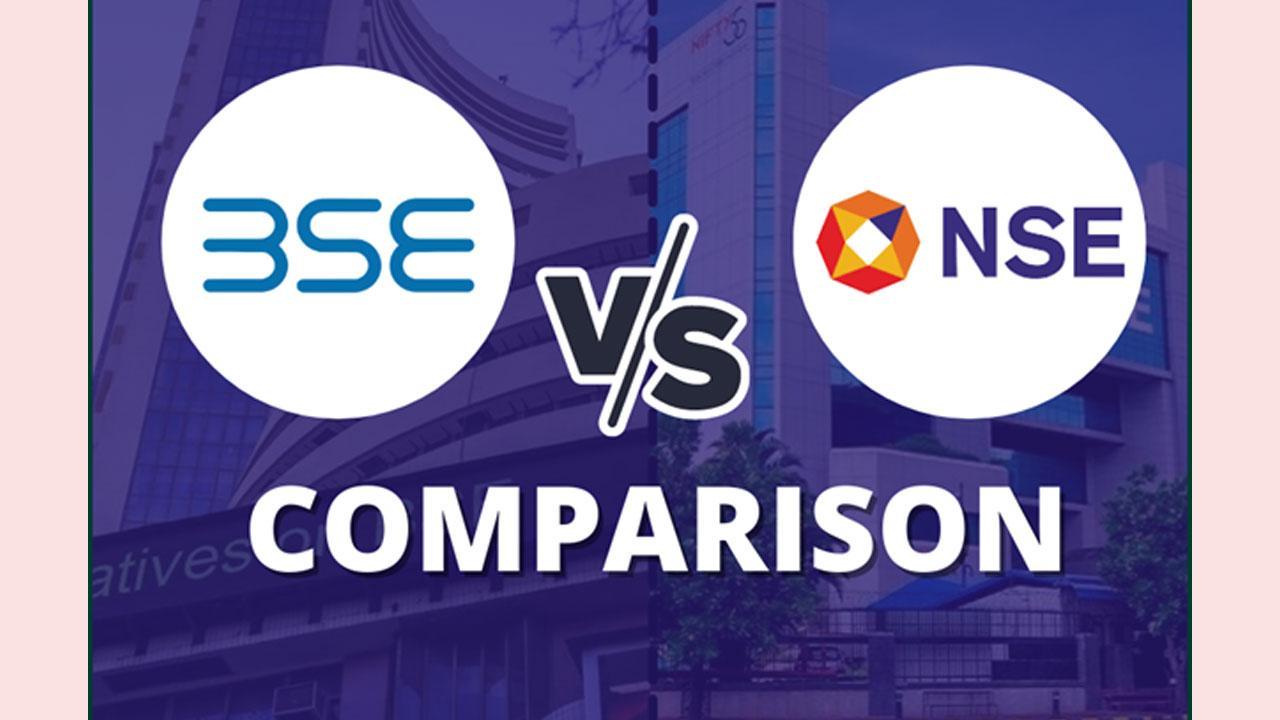BSE has more listed companies than NSE, with over 5,000 companies listed on its platform.

BSE and NSE
Introduction
ADVERTISEMENT
The Bombay Stock Exchange (BSE) and the National Stock Exchange (NSE) are two of the most prominent stock exchanges in India. They are the largest and most liquid platforms for trading in the country, with thousands of listed companies and a combined market capitalization of over $3 trillion.
However, many investors, especially those new to the stock market, often wonder which exchange to choose for their investments. In this article, we will compare BSE and NSE on various parameters to help you make an informed decision.
Primary Market vs. Secondary Market
Before we delve into the comparison between BSE and NSE, it is essential to understand the difference between the primary and secondary markets.
The primary market is where companies raise capital by issuing new shares to the public through an Initial Public Offering (IPO).
The secondary market, on the other hand, is where existing shares of listed companies are traded between investors. BSE and NSE are both secondary markets where investors can buy and sell shares of listed companies.
BSE and NSE: A Comparison
1. Market Capitalization
BSE has a larger market capitalization than NSE, with a combined market capitalization of over $2.5 trillion. However, NSE has a higher daily trading volume than BSE, with a turnover of over $10 billion compared to BSE's $7 billion.
2. Number of Listed Companies
BSE has more listed companies than NSE, with over 5,000 companies listed on its platform. NSE has around 1,900 listed companies. However, NSE has a higher average market capitalization per company than BSE.
3. Trading Hours
BSE and NSE have the same trading hours, from 9:15 am to 3:30 pm, with a one-hour break from 12:00 pm to 1:00 pm.
4. Index
BSE's benchmark index is the S&P BSE SENSEX, which comprises 30 well-established and financially sound companies listed on BSE. NSE's benchmark index is the NIFTY 50, which comprises 50 of the largest and most liquid Indian companies listed on NSE.
5. Trading Platform
BSE and NSE have different trading platforms, with BSE using the BSE Online Trading (BOLT) platform and NSE using the National Stock Exchange of India Limited (NSE-IL) platform.
6. Investor Protection
Both BSE and NSE have robust investor protection measures in place, with BSE being a member of the Securities and Exchange Board of India (SEBI) and NSE being a self-regulatory organization (SRO).
7. Initial Public Offerings (IPOs)
Both BSE and NSE host IPOs, with companies raising capital by issuing new shares to the public.
Which One Should You Choose?
Choosing between BSE and NSE ultimately depends on your investment goals and preferences.
If you are looking for a broader range of investment options, BSE may be the better choice due to its larger number of listed companies. However, if you are looking for higher liquidity and trading volume, NSE may be the better choice.
Additionally, if you are interested in investing in IPOs, both BSE and NSE offer a wide range of options. However, it is essential to conduct thorough research and due diligence before investing in any IPO.
Conclusion
BSE and NSE are both prominent stock exchanges in India, with their unique strengths and weaknesses. By understanding the differences between the two, investors can make informed decisions about where to invest their money.
Ultimately, the choice between BSE and NSE depends on your investment goals, preferences, and risk tolerance. It is always recommended to consult with a financial advisor or investment professional before making any investment decisions.
 Subscribe today by clicking the link and stay updated with the latest news!" Click here!
Subscribe today by clicking the link and stay updated with the latest news!" Click here!








